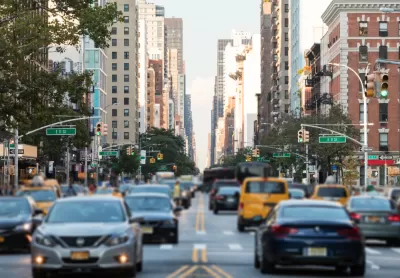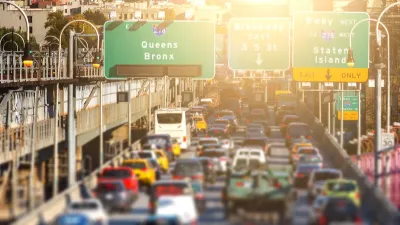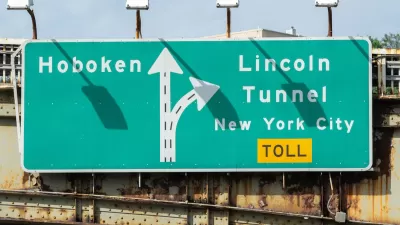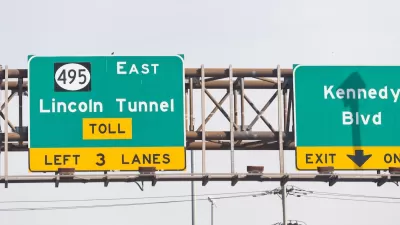Despite the administration’s stated concern for the “working class,” 85 percent of Manhattan commuters use public transit to enter the city.

The U.S. Department of Transportation (USDOT), under new leadership, rescinded federal approval for New York City’s congestion pricing program, eliminating billions in projected revenue for public transit infrastructure in the region, reports Gersh Kuntzman for Streetsblog NYC.
In a letter sent by U.S. DOT Secretary Sean Duffy to Gov. Hochul — first handed out to the Post — the White House revealed that it would pull the congestion pricing approval, granted by the Biden administration under a 34-year-old federal tolling program called the Value Pricing Pilot Program.
The administration expressed purported concern for the “working class,” even though roughly 85 percent of commuters into Manhattan use public transit.
According to Transportation Secretary Sean Duffy, the program is not eligible for the value pricing program “because cordon pricing ‘provides no toll-free option for many drivers who want or need to travel by vehicle in this major urbanized area’ and because he believes that the primary goal of congestion pricing was to raise revenue for the Metropolitan Transit Authority, ‘but the toll rate that is set under VPPP should not be driven primarily by revenue targets.’”
Some New York lawmakers decried the move. In a social media post, state Senator Zellnor Myrie wrote, “Congestion pricing is working — and is critical for the investments we need to make in our public transit system.”
FULL STORY: BREAKING: Trump Withdraws Federal Approval for Congestion Pricing; Hole Blown in Transit Repair Budget

Alabama: Trump Terminates Settlements for Black Communities Harmed By Raw Sewage
Trump deemed the landmark civil rights agreement “illegal DEI and environmental justice policy.”

Planetizen Federal Action Tracker
A weekly monitor of how Trump’s orders and actions are impacting planners and planning in America.

Why Should We Subsidize Public Transportation?
Many public transit agencies face financial stress due to rising costs, declining fare revenue, and declining subsidies. Transit advocates must provide a strong business case for increasing public transit funding.

Understanding Road Diets
An explainer from Momentum highlights the advantages of reducing vehicle lanes in favor of more bike, transit, and pedestrian infrastructure.

New California Law Regulates Warehouse Pollution
A new law tightens building and emissions regulations for large distribution warehouses to mitigate air pollution and traffic in surrounding communities.

Phoenix Announces Opening Date for Light Rail Extension
The South Central extension will connect South Phoenix to downtown and other major hubs starting on June 7.
Urban Design for Planners 1: Software Tools
This six-course series explores essential urban design concepts using open source software and equips planners with the tools they need to participate fully in the urban design process.
Planning for Universal Design
Learn the tools for implementing Universal Design in planning regulations.
Caltrans
Smith Gee Studio
Institute for Housing and Urban Development Studies (IHS)
City of Grandview
Harvard GSD Executive Education
Toledo-Lucas County Plan Commissions
Salt Lake City
NYU Wagner Graduate School of Public Service





























